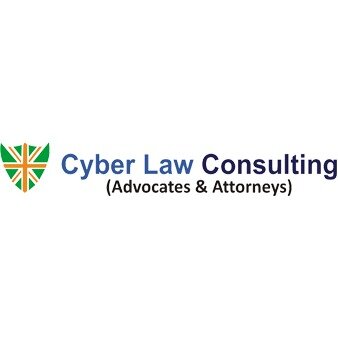Best Drug Crime Lawyers in India
Share your needs with us, get contacted by law firms.
Free. Takes 2 min.
Or refine your search by selecting a city:
List of the best lawyers in India
About Drug Crime Law in India
Drug crime in India is a serious legal issue governed by the Narcotic Drugs and Psychotropic Substances Act, 1985 (NDPS Act). This legislation regulates the control and prohibition of narcotic drugs and psychotropic substances. It covers various aspects of drug-related activities, such as cultivation, production, manufacture, possession, sale, purchase, transport, warehousing, use, consumption, import inter-State, export inter-State, import into India, export from India, or transshipment. The law is stringent and provides for severe penalties, including imprisonment and fines, to curb drug trafficking and abuse in the country.
Why You May Need a Lawyer
If you are facing charges related to drug crimes in India, securing legal assistance can be crucial for several reasons:
- Legal Representation: Navigating the complexities of the NDPS Act and related legal proceedings without expert help can be challenging.
- Rights Protection: A lawyer can ensure that your rights are protected throughout the legal process.
- Building a Defense: Skilled attorneys can help in gathering evidence and constructing a robust defense strategy.
- Plea Bargaining: Legal aid is essential if you consider plea negotiations to mitigate potential sentences.
- Legal Advice: A lawyer can provide guidance on the legal nuances and potential outcomes of your case.
Local Laws Overview
The NDPS Act is the primary legal framework governing drug-related crimes in India. Key aspects include:
- Strict Penalties: The Act prescribes stringent penalties, including rigorous imprisonment, depending on the quantity of drugs involved and the nature of the offense.
- No Bail Provision: Bail is usually not granted easily for offenses under the NDPS Act, requiring strong legal arguments.
- Presumption of Guilt: The Act has presumptive clauses wherein the burden of proof shifts to the accused in certain circumstances, complicating defense strategies.
- Scheduled Substances: The law provides a detailed schedule of substances classified under various categories, significantly influencing the severity of charges.
Frequently Asked Questions
What is the NDPS Act?
The NDPS Act stands for the Narcotic Drugs and Psychotropic Substances Act, 1985, which regulates drug-related activities in India.
What are the penalties for drug crimes under the NDPS Act?
Penalties vary depending on the type and quantity of drugs involved, ranging from fines and short-term imprisonment to life imprisonment and substantial financial penalties.
Can one get bail under the NDPS Act?
Bail under the NDPS Act is challenging to obtain, particularly for serious offenses, and often requires compelling legal representation.
What should I do if I'm accused of a drug crime?
Seek immediate legal counsel to understand your rights, the charges against you, and to begin constructing a defense strategy.
How does the law categorize drugs?
The law categorizes drugs into narcotic drugs and psychotropic substances, with a detailed schedule in the NDPS Act specifying regulated substances.
What is considered possession under the NDPS Act?
Possession under the NDPS Act includes actual physical control over drugs or substances, without lawful authority, intending to use or distribute.
Are there any exemptions under the NDPS Act?
Certain exemptions exist for medicinal and scientific purposes but require legal compliance and proper authorization.
What is the presumption of guilt in drug cases?
The presumption of guilt in certain NDPS Act cases means the burden of proof shifts to the accused, demanding substantial evidence to counter accusations.
Can foreigners be prosecuted under the NDPS Act?
Yes, foreign nationals involved in drug crimes in India can be prosecuted under the NDPS Act.
What are the defenses available in drug crime cases?
Common defenses include lack of knowledge, unauthorized search and seizure, procedural errors, or proving the substance was not a banned one.
Additional Resources
For those needing further assistance or information, the following resources may be helpful:
- Narcotics Control Bureau (NCB): A central agency responsible for coordinating drug law enforcement in India.
- State Anti-Narcotics Cells: These bodies specialize in dealing with drug-related cases at the state level.
- Legal Aid Clinics: Provide free or low-cost legal services to individuals facing prosecution under the NDPS Act.
- NGOs: Organizations like the Society for Promotion of Youth and Masses (SPYM) work on drug de-addiction programs and legal aid.
Next Steps
If you or someone you know requires legal assistance in drug crime cases in India, consider the following steps:
- Consult a Lawyer: Immediately contact an attorney with expertise in the NDPS Act to discuss your case.
- Understand Your Rights: Gain clarity on your legal rights and obligations to move forward effectively.
- Gather Evidence: Collect any relevant documentation or evidence that might assist your legal defense.
- Be Proactive: Engage in open communication with your legal representative to create an effective strategy.
Taking prompt and informed action can significantly influence the outcome of a drug crime case. Always prioritize seeking professional legal guidance for the best possible defense.
Lawzana helps you find the best lawyers and law firms in India through a curated and pre-screened list of qualified legal professionals. Our platform offers rankings and detailed profiles of attorneys and law firms, allowing you to compare based on practice areas, including Drug Crime, experience, and client feedback.
Each profile includes a description of the firm's areas of practice, client reviews, team members and partners, year of establishment, spoken languages, office locations, contact information, social media presence, and any published articles or resources. Most firms on our platform speak English and are experienced in both local and international legal matters.
Get a quote from top-rated law firms in India — quickly, securely, and without unnecessary hassle.
Disclaimer:
The information provided on this page is for general informational purposes only and does not constitute legal advice. While we strive to ensure the accuracy and relevance of the content, legal information may change over time, and interpretations of the law can vary. You should always consult with a qualified legal professional for advice specific to your situation.
We disclaim all liability for actions taken or not taken based on the content of this page. If you believe any information is incorrect or outdated, please contact us, and we will review and update it where appropriate.
Browse drug crime law firms by city in India
Refine your search by selecting a city.

















